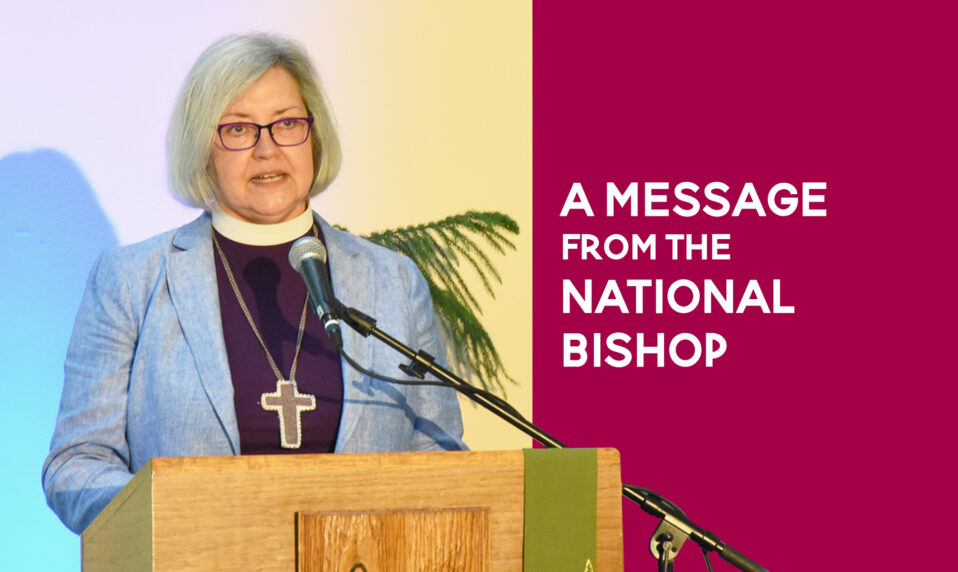“Through the 2011 Social Statement on Human Sexuality, the ELCIC is committed to upholding the dignity of all people and to engaging in practices that more fully enable all people, regardless of their sexual orientation, to live as members of the body of Christ.”
ELCIC National Bishop Susan Johnson has shared a pastoral letter with the church and 2SLGBTQIA+ community on upholding the dignity of all people.
View the PDF version of this letter here.
Dear friends in Christ,
Through the 2011 Social Statement on Human Sexuality, the ELCIC is committed to upholding the dignity of all people and to engaging in practices that more fully enable all people, regardless of their sexual orientation, to live as members of the body of Christ. It also commits us to meeting diverse people with a core sense of respect for the value of each person as a unique child of God. In 2019, the ELCIC established a task force to guide and encourage the church in addressing ongoing issues of homophobia, biphobia, and transphobia.
Just as the church wonders how to uphold dignity, so do our communities and our societies. Recently, in different parts of Canada, there have been policy amendments, legislative actions, and political messaging that have sought to reduce rights, safety and legal protections for 2SLGBTQIA+ people, particularly transgender and non-binary youth.
The people of the ELCIC and the 2SLGBTQIA+ community, inside and outside the church, know too well how acts of homophobia, transphobia, and biphobia—including religious-induced discrimination—embolden public expressions of hate crimes and violence. Unfortunately, deliberate disinformation takes aim at care and safer spaces for transgender and gender non- conforming youth; hateful rhetoric, discriminatory legislation, and restrictions directly place their health, safety, and well-being at risk.
The call to uphold dignity is a long-term commitment that involves learning, transformation, and actions. The 2011 Social Statement offered this guidance: We all have biases and prejudices. When we use our biases to try to articulate God’s will, we run the risk of abusing power and authority. As in every age, we in our time need to examine our biases and prejudices. In so doing, we are open to growth in understanding of Holy Scriptures, and in the application of God’s will for our time. “Be quick to hear, slow to speak, and slow to anger.” (James 1:19)
Some of us feel overwhelmed by new language about sexual orientation, gender identity, and gender expression. In 2011, the ELCIC also committed to supporting families and households in being places of love and formation, and to creating safe, respectful space for conversation, reflection, teaching, and discernment on matters of sexuality. When we feel overwhelmed, we can support each other in stress and worry, we can listen for deeper understanding, and we can seek out new learning.
Some of us feel a need for ongoing learning. When you encounter messages that seem to promote polarization or bias, you may choose to deepen your own understanding of sexual orientation, gender identity, gender expression, homophobia, biphobia, and transphobia.
Some of us feel called to act more for justice. You are free to contact provincial and federal leaders to ask them to safeguard and affirm legislation that affirms safety and rights for transgender and non-binary youth.
However you are feeling, please know you are in our thoughts and prayers. Yours in Christ,
Rev. Susan C. Johnson, National Bishop




